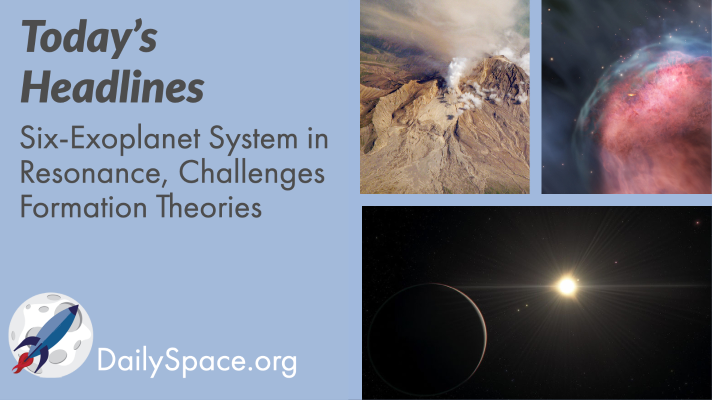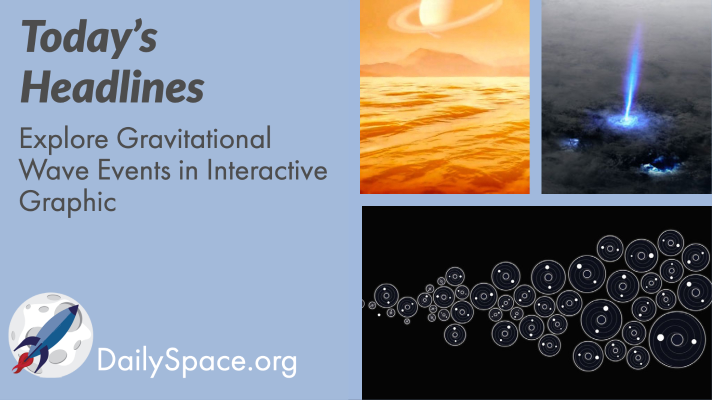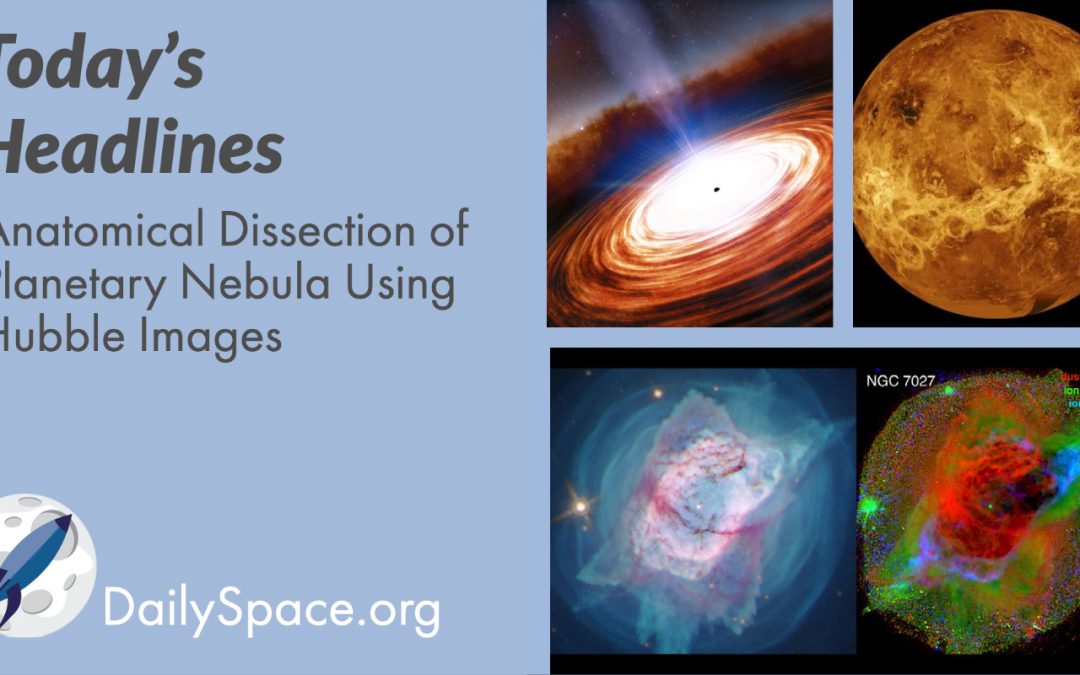
Jan 29, 2021 | Asteroids, Daily Space, Dark Matter, Earth, Galaxies, Moon, Sky Watching, Space History, SpaceX
Dark matter is only acted upon by the force of gravity according to new research, which constrains the potential range of mass for the elusive particles. Plus, how precipitation affects the Earth’s crust, a pair of ancient asteroid impacts in Germany, NASA’s Day of Remembrance, and this week’s What’s Up.

Jan 28, 2021 | Curiosity, Daily Space, Mars, Random Space Fact, Rockets, Spacecraft, SpaceX, Starlink
Join us for this week’s Rocket Roundup with host Annie Wilson as we look back at the launches that happened over the last week, including one Rocket Lab and two SpaceX… wait, more Starlink? *checks notes* Yes, more Starlink.

Jan 27, 2021 | Daily Space, Earth, Exoplanets, Galaxies, Kepler, Quantum, Supermassive Black Holes
It’s a day ending in ‘y’, and planetary formation theories are once again being challenged. This time the challenge comes from a six-planet system with five planets in resonance. Plus a cloudless Jupiter, TRAPPIST-1, volcanoes, and some science of the weird.

Jan 25, 2021 | Cassini, Curiosity, Daily Space, Dark Matter, Earth, Mars, NuSTAR, Our Solar System, Physics, Titan, Uncategorized
A data visualization designer has created an interactive graphic that allows us to explore all 50 gravitational wave events recorded to date, and some even have sounds! Plus, blue jet lightning and all the planetary science stories we can handle. Happy Friday!

Jan 22, 2021 | Daily Space, Earth, Exoplanets, Galaxies, Mars, Quasar, Sky Watching, The Sun

Jan 20, 2021 | Climate Change, Daily Space, Exoplanets, Galaxies, Guest Interview, Jupiter, Neutron Stars / Pulsars, Physics, Planetary Nebulae, Quasar, Supermassive Black Holes, Venus
Our coverage of last week’s AAS meeting continues with new work on the formation of planetary nebula based on Hubble Space Telescope images. Plus, a massive quasar in the early universe, water ice on Ganymede, a super-puff planet, and plans for taking spectra of Venus’ surface, featuring our guest, PSI scientist Dr. Darby Dyer.








 We record most shows live, on Twitch. Follow us today to get alerts when we go live.
We record most shows live, on Twitch. Follow us today to get alerts when we go live.